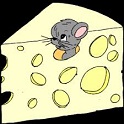|
Super Moderator
Join Date: Aug 2013
Location: Hamilton, ON
Posts: 25,085
|

Before tackling the inventory problem in detail, let's have a closer look at what the basic problem is. Simple examples like the following take on a world of meaning when we think about them. Suppose a person places sex desire ahead of everything else. In such a case, this imperious urge can destroy his chances for material and emotional security as well as his standing in the community.
Another may develop such an obsession for financial security that he wants to do nothing but hoard money. Going to the extreme, he can become a miser, or even a recluse who denies himself both family and friends. Nor is the quest for security always expressed in terms of money. How frequently we see a frightened human being determined to depend completely upon a stronger person for guidance and protection. This weak one, failing to meet life's responsibilities with his own resources, never grows up. Disillusionment and helplessness are his lot. In time all his protectors either flee or die, and he is once more left alone and afraid.
We have also seen men and women who go power-mad, who devote themselves to attempting to rule their fellows. These people often throw to the winds every chance for legitimate security and a happy family life. Whenever a human being becomes a battleground for the instincts, there can be no peace. But that is not all of the danger. Every time a person imposes his instincts unreasonably upon others, unhappiness follows. If the pursuit of wealth tramples upon people who happen to be in the way, then anger, jealousy, and revenge are likely to be aroused. If sex runs riot, there is a similar uproar.
Demands made upon other people for too much attention, protection, and love can only invite domination or revulsion in the protectors themselves--two emotions quite as unhealthy as the demands which evoked them. When an individual's desire for prestige becomes uncontrollable, whether in the sewing circle or at the international conference table, other people suffer and often revolt. This collision of instincts can produce anything from a cold snub to a blazing revolution. In these ways we are set in conflict not only with ourselves, but with other people who have instincts, too.
Alcoholics especially should be able to see that instinct run wild in themselves is the underlying cause of their destructive drinking. We have drunk to drown feelings of fear, frustration, and depression. We have drunk to escape the guilt of passions, and then have drunk again to make more passions possible. We have drunk for vain glory--that we might the more enjoy foolish dreams of pomp and power. This perverse soul-sickness is not pleasant to look upon. Instincts on rampage balk at investigation. The minute we make a serious attempt to probe them, we are liable to suffer severe reactions.
If temperamentally we are on the depressive side, we are apt to be swamped with guilt and self-loathing. We wallow in this messy bog, often getting a misshapen and painful pleasure out of it. As we morbidly pursue this melancholy activity, we may sink to such a point of despair that nothing but oblivion looks possible as a solution. Here, of course, we have lost all perspective, and therefore all genuine humility. For this is pride in reverse. This is not a moral inventory at all; it is the very process by which the depressive has so often been led to the bottle and extinction.
If, however, our natural disposition is inclined to self righteousness or grandiosity, our reaction will be just the opposite. We will be offended at A.A.'s suggested inventory. No doubt we shall point with pride to the good lives we thought we led before the bottle cut us down. We shall claim that our serious character defects, if we think we have any at all, have been caused chiefly by excessive drinking. This being so, we think it logically follows that sobriety-- first, last, and all the time--is the only thing we need to work for. We believe that our one-time good characters will be revived the moment we quit alcohol. If we were pretty nice people all along, except for our drinking, what need is there for a moral inventory now that we are sober? We also clutch at another wonderful excuse for avoiding an inventory. Our present anxieties and troubles, we cry, are caused by the behavior of other people--people who really need a moral inventory. We firmly believe that if only they'd treat us better, we'd be all right. Therefore we think our indignation is justified and reasonable--that our resentments are the "right kind." We aren't the guilty ones. They are! At this stage of the inventory proceedings, our sponsors come to the rescue.
They can do this, for they are the carriers of A.A.'s tested experience with Step Four. They comfort the melancholy one by first showing him that his case is not strange or different, that his character defects are probably not more numerous or worse than those of anyone else in A.A. This the sponsor promptly proves by talking freely and easily, and without exhibitionism, about his own defects, past and present. This calm, yet realistic, stocktaking is immensely reassuring. The sponsor probably points out that the newcomer has some assets which can be noted along with his liabilities. This tends to clear away morbidity and encourage balance. As soon as he begins to be more objective, the newcomer can fearlessly, rather than fearfully, look at his own defects.
continued...
__________________
Love always,
Jo
I share because I care.

|